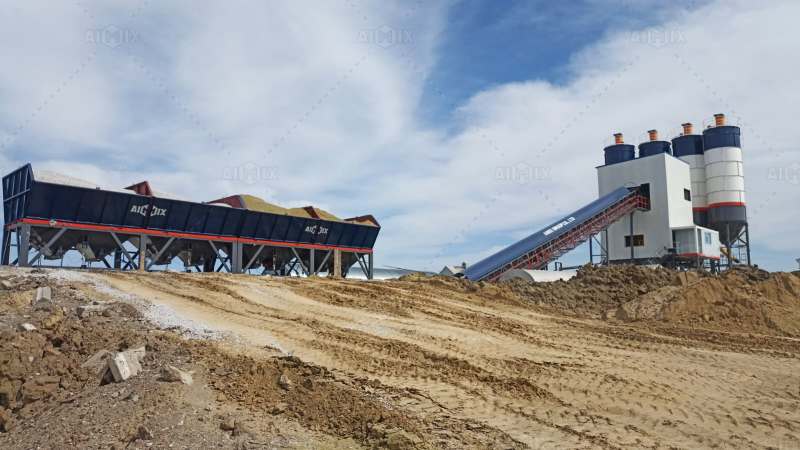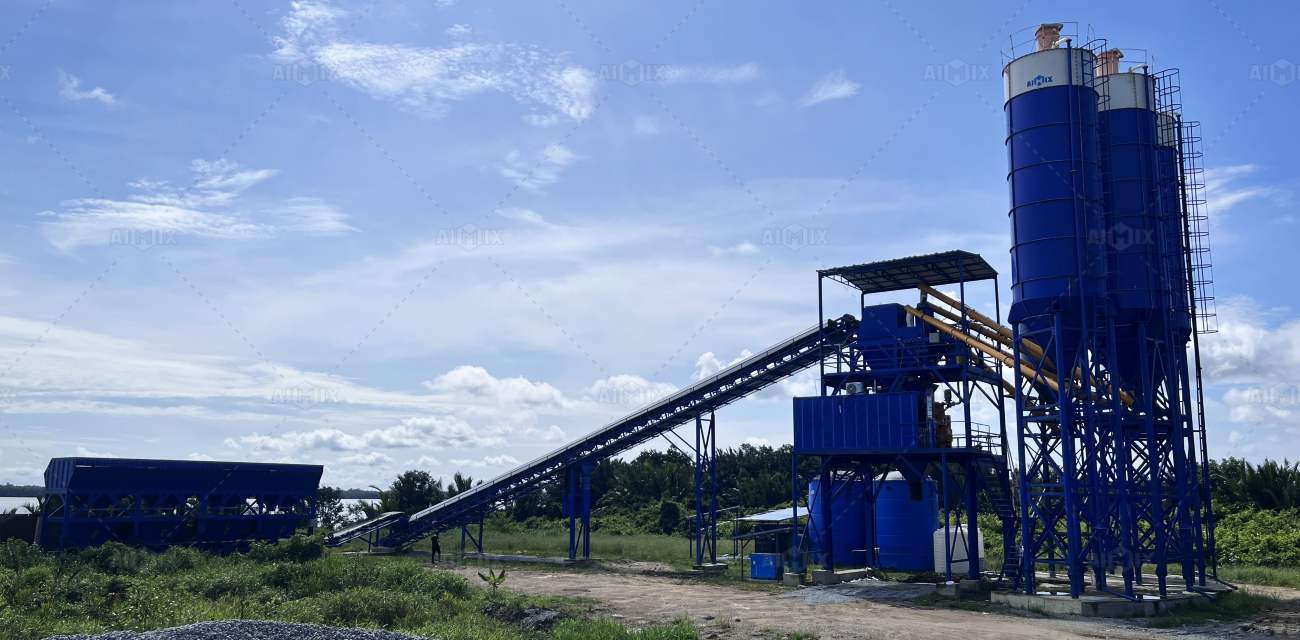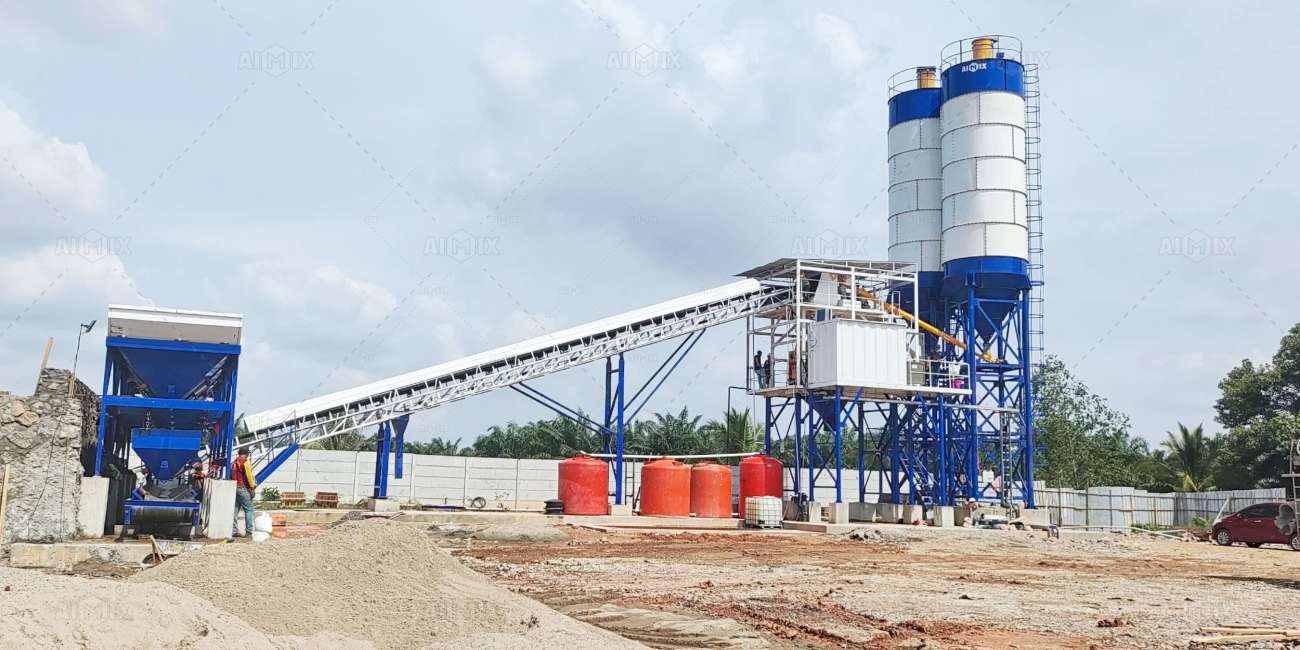Ready-mix concrete (RMC) has become a staple in the construction industry due to its convenience, quality control, and efficiency. However, one of the biggest considerations for contractors, developers, and construction businesses is the ready mix concrete plant cost. Whether you’re purchasing an RMC batching plant or exploring a concrete batch plant for sale, understanding the breakdown of costs involved is crucial to making a sound investment decision. This article will explore the different factors influencing the price of ready mix concrete plants and what you should expect to pay when considering your purchase.

Understanding Ready Mix Concrete Plant Cost Factors
The cost of an RMC batching plant depends on a variety of factors, which can vary significantly depending on your needs, the scale of your operation, and the manufacturer. The main elements that contribute to the cost include the following:
a. Plant Size and Capacity
One of the primary factors that will influence the price of a ready mix concrete plant is the size and capacity of the plant. Concrete batching plants come in different configurations, such as small mobile plants for smaller projects or larger stationary plants for high-volume production. Generally, the larger the plant’s capacity, the higher the cost.
For instance, a smaller RMC batching plant with a capacity of 25-50 cubic meters per hour might cost significantly less than a high-capacity plant capable of producing 150 cubic meters per hour. Buyers should assess their anticipated concrete demand to choose the right capacity. Oversizing the plant can result in wasted costs, while undersizing it might lead to supply shortages and delays.
b. Plant Type: Mobile vs. Stationary
Another key decision when purchasing a ready mix concrete plant is whether to go with a mobile or stationary option. Mobile plants offer flexibility and can be relocated to different job sites, which is ideal for projects with varying locations or temporary needs. However, they tend to be more expensive due to their mobility and compact design.
On the other hand, stationary plants are designed for large-scale operations and continuous use at a fixed location. They usually come with a lower price tag compared to mobile plants, but they lack the versatility that mobile units provide. The cost of a concrete batch plant for sale can vary greatly depending on the type you choose, so it’s essential to consider project duration and mobility requirements.
c. Automation and Technology
Modern concrete batching plants come with various levels of automation. Basic plants may require manual operation, which is cheaper upfront but requires more labor and may result in more human errors. On the other hand, automated plants are equipped with advanced features like computerized control systems, remote monitoring, and real-time batching adjustments.
While automated plants tend to have a higher initial cost, they provide long-term benefits, such as improved consistency, reduced labor costs, and enhanced efficiency. Therefore, deciding on the level of automation required for your operations is essential in determining the total cost.
d. Location and Installation
The location where the RMC batching plant will be installed is also a significant cost factor. The price of transportation, installation, and any site preparation (such as foundations or infrastructure) must be factored into the overall cost. For projects located in remote or hard-to-reach areas, transportation and setup costs can add a substantial amount to the price.
e. Additional Features and Customization
Some buyers may require customized solutions or additional features such as integrated water recycling systems, dust control systems, and enhanced cement storage solutions. While these features improve sustainability and efficiency, they also add to the upfront cost.

Expected Price Range for Ready Mix Concrete Plants
Now that we’ve covered the factors that affect the cost, it’s important to understand what you should expect to pay.
-
Small-Scale RMC Batching Plants: Typically, smaller plants with capacities of 25-50 cubic meters per hour range from $50,000 to $150,000. These are suitable for small-scale construction projects, residential developments, or rural locations.
-
Medium-Sized Plants: A medium-sized RMC batching plant with a capacity between 50-100 cubic meters per hour can cost anywhere from $150,000 to $300,000, depending on the type of automation and customization required.
-
Large-Scale Plants: Larger plants designed for high-volume production (over 100 cubic meters per hour) may range from $300,000 to $1,000,000 or more. These plants are typically used for commercial and industrial projects, such as highway construction or large urban developments.
The costs mentioned above are just estimates and can vary depending on factors such as the plant manufacturer, location, and additional requirements.
The Role of Concrete Batching Plants Manufacturers
Concrete batching plants manufacturers play a crucial role in determining the quality, features, and reliability of the equipment you purchase. Leading manufacturers often offer a wide range of options to cater to different project needs. These suppliers are well-versed in the technology and materials used to build plants that maximize efficiency, minimize waste, and improve overall cost-effectiveness.
Working with a reputable concrete batching plants manufacturer ensures that you receive high-quality machinery, along with valuable after-sales support, including installation, maintenance, and parts replacement. As such, choosing a well-established manufacturer with a proven track record is an investment that can significantly improve the overall value of your concrete batching plant.

Financing and Maintenance Costs
In addition to the purchase price, businesses should also consider the long-term financial commitments, including maintenance, operational costs, and potential financing options. Many suppliers offer flexible payment plans, including leasing or financing options, to help contractors and developers manage the upfront cost.
Ongoing maintenance costs, such as wear and tear on critical components like the mixer, conveyors, and storage silos, should also be factored in. Maintenance contracts and warranties provided by manufacturers can reduce the impact of these ongoing costs, ensuring the plant operates efficiently for years.
In Conclusion
Understanding the cost structure of a ready mix concrete plant is essential for making an informed purchasing decision. From the initial plant size and capacity to the type, automation, and customization options, each factor plays a role in determining the total cost of the equipment. The investment in a high-quality RMC batching plant or concrete batch plant for sale can be substantial, but it offers significant returns through improved production efficiency, consistent quality, and better resource management.
By carefully assessing your specific needs and working with reliable concrete batching plants manufacturers, you can make a smart investment that supports your construction business in the long term.